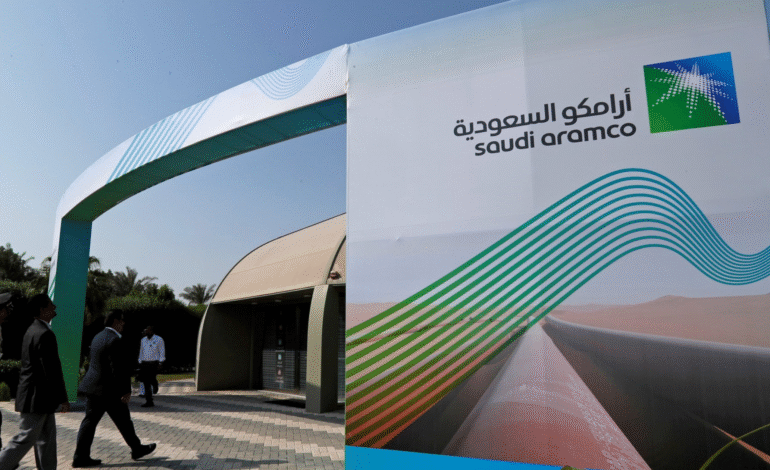Saudi Aramco Returns to Philippines Oil Market with Unioil Investment

The Philippine Competition Commission (PCC) has approved the plan of Aramco Asia Singapore Pte. Ltd., a subsidiary of Saudi Aramco, to acquire a 25% stake in Unioil Petroleum Philippines, Inc. and Unioil Energy Pte. Ltd..
The PCC confirmed that this deal will not reduce competition in the Philippine fuel market. Instead, it is expected to strengthen supply security, encourage fair pricing, and open more opportunities for industry growth. For Aramco, the investment marks a significant return to the country after almost three decades.
PCC Approval and Competition Safeguards
The PCC noted in its decision that the acquisition is unlikely to harm market competition. Both Aramco and Unioil hold only limited shares compared to bigger industry players such as Petron, Shell, and Caltex. The commission also highlighted that barriers to entering the industry remain low, which means new companies can still compete in the sector.
These findings reflect the goals of the Philippine Competition Act, which is designed to protect consumers from anti-competitive practices and ensure markets remain open. By allowing the deal, the PCC has shown its confidence that the Philippine oil market can welcome foreign investments without sacrificing fairness.
The Companies Involved
Aramco Asia Singapore is the regional arm of Saudi Aramco, the world’s largest oil company. It oversees sales, marketing, procurement, and logistics across Asia. This acquisition allows the energy giant to expand its presence in Southeast Asia, where fuel demand continues to rise.
Unioil Petroleum Philippines operates as an independent fuel retailer, with a growing number of service stations nationwide. It is known for competitive fuel prices and for introducing eco-friendly fuel alternatives to the local market.
Unioil Energy Pte. Ltd., based in Singapore, manages the importation of gasoline and diesel for the Philippine market, serving as an important link between global supply and local demand.
Aramco’s Return After Three Decades
This investment marks Aramco’s first major re-entry into the Philippine market since 1994, when it sold its 40% stake in Petron Corporation, then the country’s leading oil refiner and distributor.
Since then, Aramco has focused its efforts elsewhere in Asia. However, the fast-growing Philippine economy—with more vehicles, expanding infrastructure, and rising energy demand—has made the country an attractive market once again. Partnering with Unioil gives Aramco a strong platform to rebuild its presence and secure long-term growth in the region.
Market Impact and Consumer Benefits
The Philippine oil market is highly competitive, with more than 600 players operating nationwide. While major firms still dominate, independent companies like Unioil have steadily gained ground.
Aramco’s backing is expected to bring several benefits:
- Fuel supply stability, thanks to Aramco’s global production and refining capacity.
- More competitive fuel pricing, as Unioil gains access to Aramco’s large-scale operations.
- Improved services for customers, with potential for better technology and cleaner fuel options.
For Filipino motorists and businesses, this partnership could mean more choices at the pump and greater confidence in the country’s fuel security.
New PCC Rules on Big Transactions
This approval also reflects the PCC’s updated thresholds for mergers and acquisitions. Earlier in 2025, the commission announced that companies must notify regulators if deals meet the following conditions:
- A party size of ₱8.5 billion or more
- A transaction size of ₱3.5 billion or more
The Aramco–Unioil deal exceeded these amounts and was therefore subject to a full review. The commission’s clearance shows that large-scale foreign investments can proceed smoothly as long as they do not harm consumer welfare.
Energy Security and National Development
Energy security is a critical issue for the Philippines. With demand for petroleum products increasing every year, the country must secure steady fuel imports while continuing to develop renewable alternatives.
By welcoming Saudi Aramco back, the Philippines gains access to one of the most reliable oil producers in the world. This investment could also lead to the building of new fuel infrastructure, job creation, and more stable energy prices. In the long run, such developments support both economic growth and sustainable national development.
Strengthening Middle East–Philippines Relations
The deal also deepens the Philippines’ relationship with the Middle East. Saudi Arabia, along with the UAE and Qatar, has been expanding its role in Asian energy markets.
For the Philippines, this move strengthens its economic ties with the Gulf region, opening doors to further cooperation not just in energy but also in trade, investment, and infrastructure projects. For Saudi Aramco, it secures access to a high-growth market while ensuring long-term demand for its products in Southeast Asia.
Aramco’s Global Strategy
This investment fits into Aramco’s global strategy of expanding its downstream operations. In recent years, Aramco has invested in refineries and chemical plants in China, formed partnerships in India, South Korea, and Malaysia, and expanded its retail presence in Asia and Europe.
The Philippines, with its strong demand and growing economy, represents a natural extension of this strategy. The Unioil partnership gives Aramco a reliable entry point while supporting local energy development.
A Partnership with Broad Benefits
The acquisition of a 25% stake in Unioil is more than a simple business deal. It is a partnership that brings value to all sides. For Aramco, it signals a successful comeback into a promising Southeast Asian market. For Unioil, it provides financial strength and global expertise to grow further. For the Philippines, it ensures stronger energy security, fairer fuel prices, and a more competitive industry.








1 Comment
[…] Philippines has approved a new law that makes it easier for foreign investors to lease land in the country. […]
Comments are closed.